Whatever your reasoning is to look at homes in Florida, you might’ve noticed that a lot of houses in the Sunshine State don’t have basements. Basements can be a key selling point for houses, so it makes sense that you’d like to find a Florida home with one attached. We researched whether you can find basements in Florida so you don’t have to check every area in the state.
Florida’s water table sits too close to the surface for traditional, underground basements to be built. Florida also has so many swamps, lakes, aquifer systems, and other sources of groundwater that landlocked areas in the state won’t have normal basements either. The closest thing you will find is walkout basements (which are only partially submerged in hillsides) in specific areas of the state.
You’re more likely to find basements in cooler, northern areas of the US compared to Florida and other southern states. We’ll go over why you can find basements more in the north, where you might be able to find walkout basements, and discuss some alternative space solutions depending on why you want a basement.
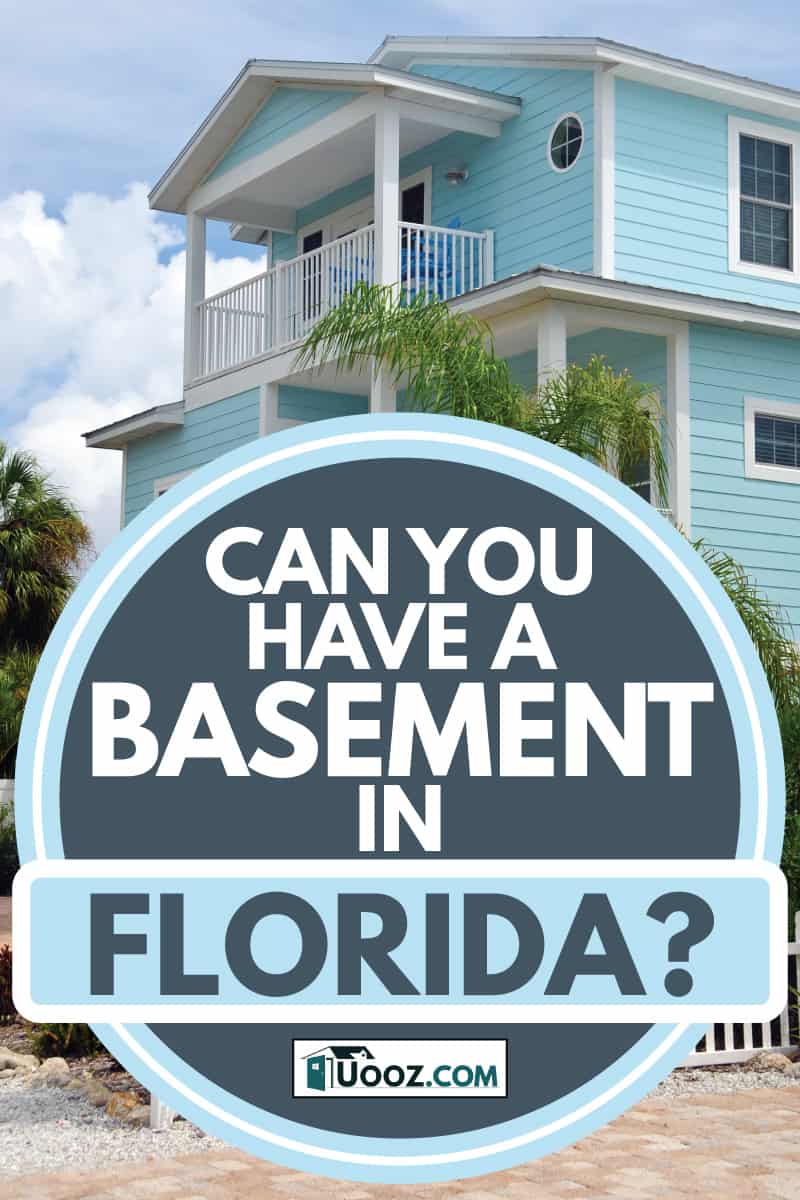
Why Are Houses Built With Basements?
The main reason houses are built with basements is to increase the total square footage and storage space of the home without taking up extra property space. Historically, basements were meant to store goods that could survive in cool, damp environments. With modern technology and increasing house sizes, the focus on basements for storage has declined over the years. Now they’re often used as an additional room in the home meant for hosting and recreation. You can read more about The Purpose Of A Basement.
The Problems With Building Basements In Florida
The majority of Florida is a giant peninsula, which means that a lot of the state is either coastline or very close to it. The Sunshine State is also known for its vast stretches of swampland, lakes, and expansive aquifers. These groundwater sources, coupled with the intense rainfall from the state’s tropical climate, means that you can’t dig very deep before the hole begins to flood.
How Deep Is the Water Table in Florida?
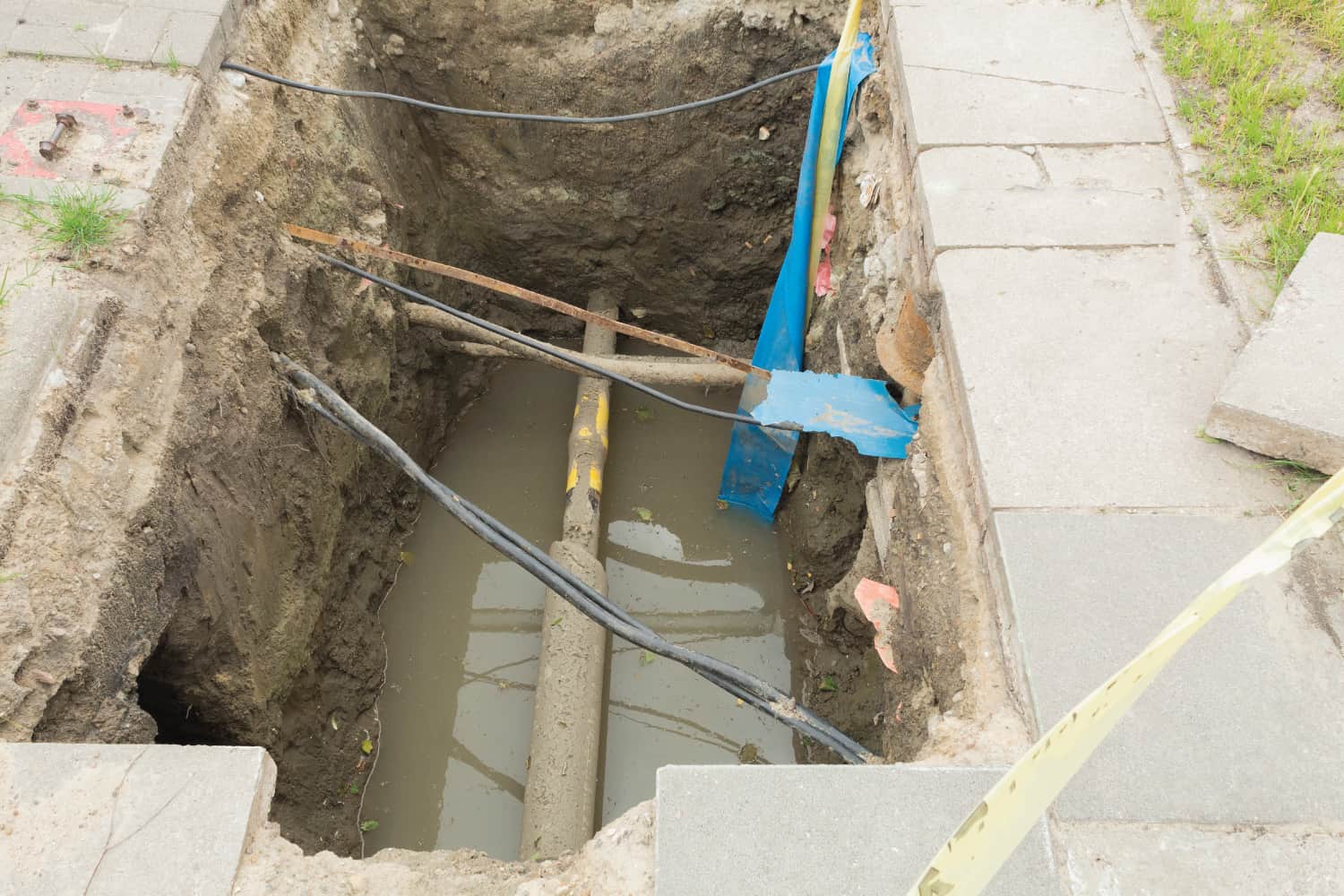
The depth of Florida’s water table depends on where you are in the state. For example, Southern Florida has the most shallow water table which sits only 3 feet below the surface. The easiest way to measure the water table is to dig several feet down and see if the hole starts flooding. But that's not practical to dig holes all over the place.
The majority of Florida’s water table sits less than 8 feet from the surface. Building regulations require basements to be built at least 8 feet underground if not deeper, which makes finding underground basements in Florida almost impossible.
What About Areas Away From the Coastline?
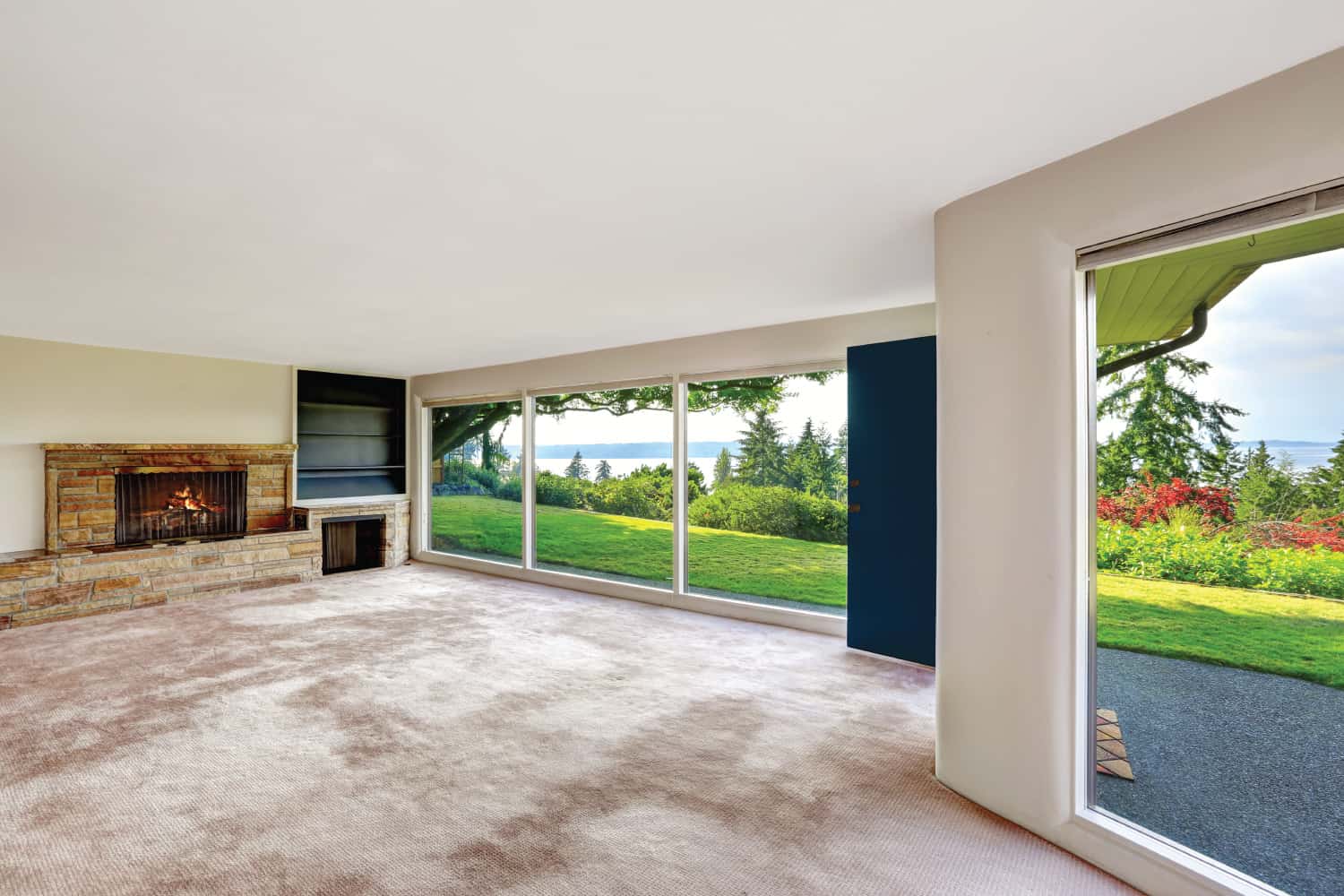
Even in the hilly areas away from the coastline like Central and Northern Florida, the soil is often damp or sandy which makes it difficult to dig the foundation for a true basement. Instead, many home designers opt for walkout basements, a type of basement or space that’s only partially submerged in a hillside. Walkout basements are found throughout hilly landscapes and offer extra space while providing easy access to a yard as well as welcoming in natural light.
Why Are More Basements Built In The North?
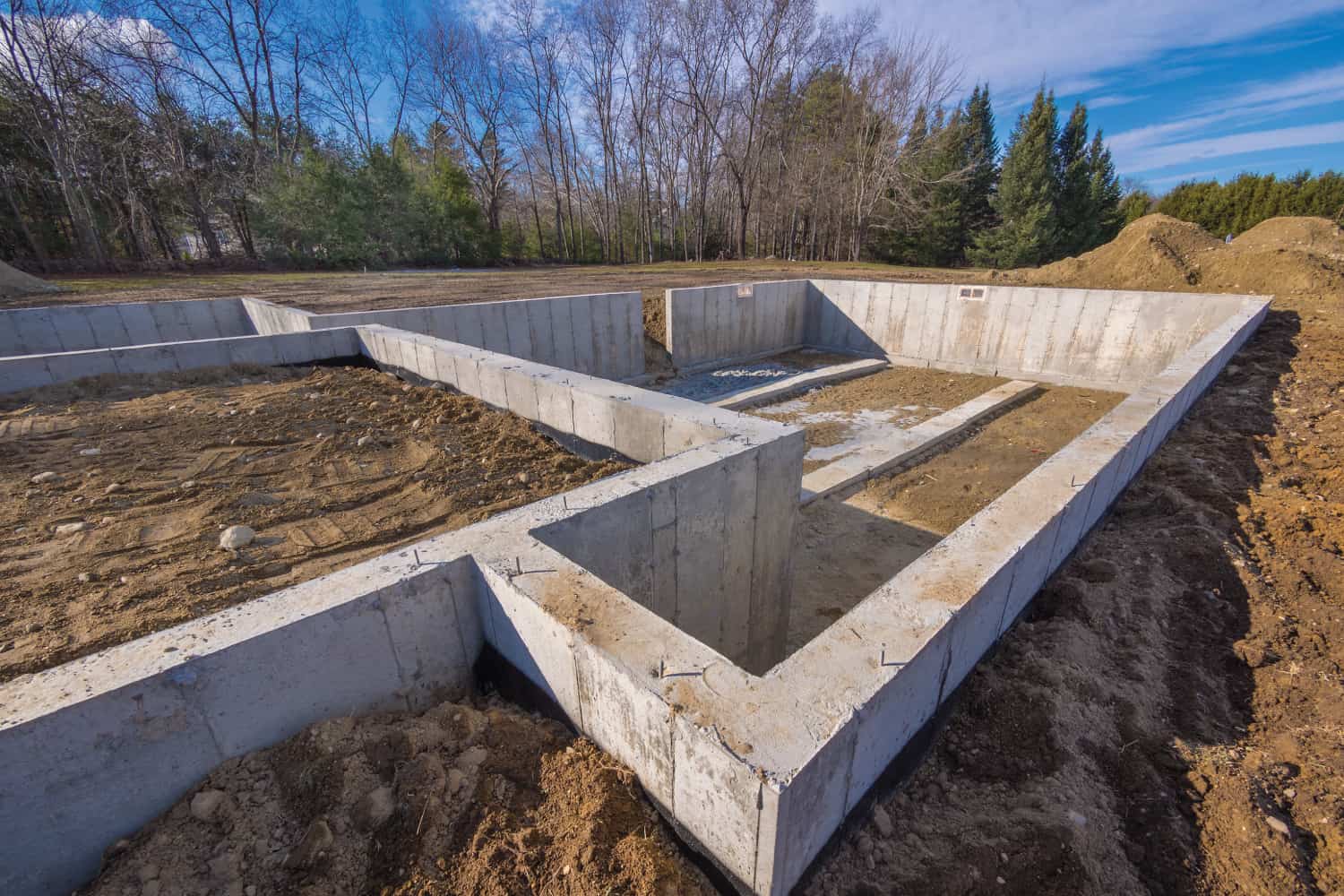
For colder climate areas, it makes a lot of sense to build a basement. The foundation of a house needs to be below the ground’s frost line so pipes and other infrastructure will not freeze. The colder the climate, the deeper the frost line will be, and the deeper the house foundation needs to be built. Sometimes the hole dug for house foundations are deep enough underground that its depth approaches the building regulation for a basement. At that point, it’s easier to include a basement when you’re digging that far down anyway.
Clay deposits and sandy soil, both of which create problems for building or maintaining a basement, are also more common in southern states. You can also find more layers of bedrock close to the surface in the south, which adds even more cost and complications to building a basement.
What States Have Basements?
You can find the majority of basements in the northern and midwestern states. While it’s not impossible to find underground basements in southern states, it would be a rare occurrence to find one. Finished basements are even rarer. Here are the states where you’re most likely to find basements in existing homes and among new ones being built:
- Iowa
- Kansas
- Minnesota
- Missouri
- Nebraska
- North Dakota
- South Dakota
- Illinois
- Indiana
- Michigan
- Ohio
- Wisconsin
Do Florida Homes Have Crawl Spaces?
Yes, some Florida homes can have crawl spaces. You’ll mostly see crawl spaces underneath older Florida homes before modern designers switched over to building houses on top of concrete slabs. Crawl spaces under Florida homes can lead to lots of problems with the constant humid air.
When warm air rises in your home, it creates a vacuum effect that sucks in more air through the lower levels of the house, including the crawl space. The crawl space tends to be a bit cooler than the outside temperature, so condensation and moisture build up in there. The excess moisture can lead to some serious water damage, unwanted pests, and other issues. As a result, many crawl spaces might have vapor barriers and dehumidifiers built-in to keep them dry.
Alternate Storage Solutions In Florida
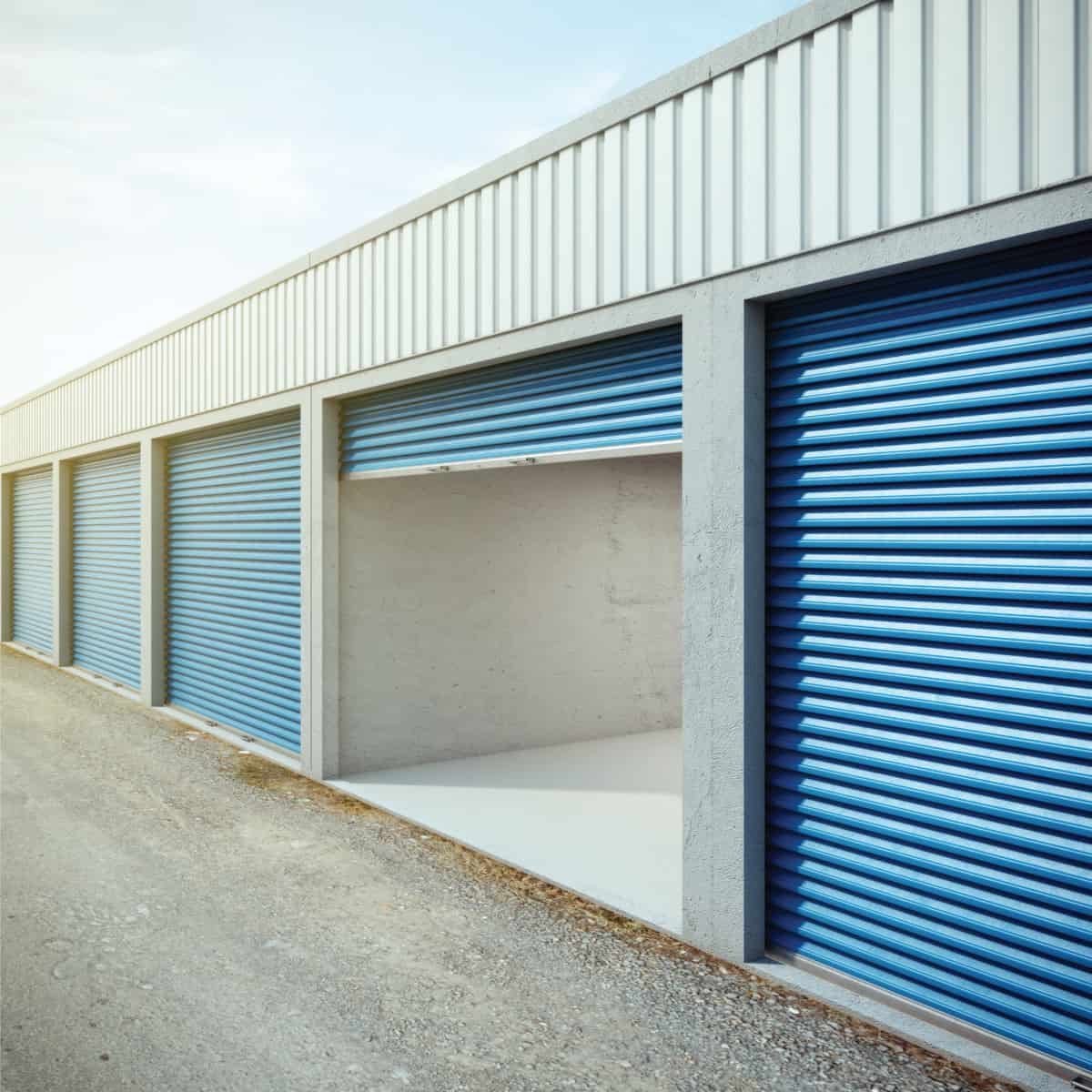
With the lack of basements in Florida, there’s a high demand for other storage solutions in the area. Here are the main alternatives that you will find in the Sunshine State:
- Attics and lofts
- A garage or shed
- Leased storage units
The attic, garage, and shed solutions are relatively simple, but they have their downsides. Unless those areas are set up with dehumidifiers and other forms of climate control, cherished items like photos or documents can easily decay over time.
Air conditioning can already be expensive in the warmer months, so adding on to the cooling bill might not be affordable for everyone. If you’re trying to keep your house cool and your bills low, the type of roof on a house can impact the overall temperature. See if a black metal roof on your home can get too hot and how to keep any extra heat from getting in (despite the type of roof you have).
Click here to see this humidifier on Amazon.
Storage units can be a quick solution to create extra space in your home. You will have to pay for a unit, but the abundant options in size and price make it an attractive solution if you need a lot of space for your items. Units also can be climate controlled, so make sure you choose that option if you plan on leaving items in storage long-term.
The biggest caveat for storage units in Florida is that you might have a hard time finding any available. Many people who move there are retiring and downsizing, so they are looking for quick storage solutions, too. Even though Florida was ranked 3rd in the US for most storage units back in 2012, the distinct lack of open units nearby has frustrated many Floridians in the past. If you’re hoping to find a unit, you might have to expand your search to a few towns over to find one.
In Closing
While it’s practically impossible to have a standard underground basement in Florida, you might be able to find some walkout basements in the hilly Central and Northern regions of the state. Attics, garages, and leased storage units are the go-to storage solutions instead of basements, but that means there’s a lot of demand for those things too.
If you’re a new Floridian homeowner, check out some of our other articles like Can Faded Vinyl Siding Be Painted? to add the perfect finishing touches to your new house.

